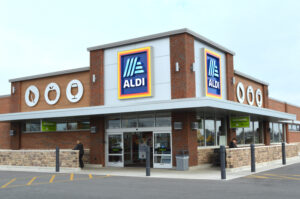Ocado to close its Hertfordshire warehouse with 2,300 jobs at risk

<?xml encoding=”utf-8″ ??>
Ocado Group is to close its oldest warehouse, in Hatfield, putting about 2,300 jobs at risk.
The online grocer, which runs the Hertfordshire site in a joint venture with Marks & Spencer, said it hoped to redeploy as many staff as possible to other customer fulfilment centres, including its new Luton site, which is expected to open later this year.
Tim Steiner, 53, co-founder and chief executive of Ocado, said a consultation for affected staff had begun, but that the business expected to retain “a large proportion of colleagues”.
However, analysts have pointed out that the distance between the sites would prevent many employees from being able to make the new commute.
The Hatfield distribution centre, located in a business park in Gypsy Moth Avenue, is about a 35-minute drive from the new site in Panattoni Park, Houghton Regis. By train, it is estimated to take almost two hours, with two changes — costing about £30 for a standard one-way ticket.
Clive Black, an analyst Shore Capital, said: “You have to feel sorry for all those people following the shock news today. No doubt there will be some people that can drive from Hatfield to Luton and back, but from a public transport perspective going sideways, as opposed to into London and out, is a nightmare and a lot of people will be looking for new jobs, which is very sad.”
Grant Shapps, a Conservative MP for Welwyn Hatfield and the energy secretary, said he was also shocked by the move and that he would be speaking to the company to “better understand their next steps”. The consultation process is due to close in the summer, with Hatfield operations expected to halt when Luton starts operating.
The Hatfield site, which was Ocado’s first fulfilment centre, opened in 2002 and handles about a fifth of the 400,000 orders it processes a week. These will be moved to “high-productivity, next-generation facilities” around the UK, it said, including Luton. Ocado added that it did not expect the volume of orders it fulfils to be affected.
Explaining the move, the company said its latest generation of automated fulfilment centres were “consistently achieving well over 200 units picked per labour hour”, compared with about 150 for its first-generation site in Hatfield. The newer sites also use less energy and have better capacity to handle same-day deliveries, it said. The group confirmed that it did not expect a material financial impact from the closure of Hatfield to its full-year 2023 financial guidance.
However, Black said he “struggled with the statement that it would have minimal financial implications”.
He added: “Making hundreds, if not thousands, of people redundant sounds like a very big cost to me. Secondly, there is going to have to be costs associated with the running down of Hatfield, and then how would the asset value and all its equipment be written down, or are there impairments to come?” Black also said he could not understand why Ocado planned to get rid of 20 per cent of its capacity: “How do you square that with being in the fast-growing sector of the food industry?”
Ocado’s sales have taken a hit after a rise in orders during the pandemic when households switched to online grocery shopping. The FTSE 100 online retailer and technology company suffered a £500.8 million pre-tax loss for the 12 months to November 27, compared with a loss of £176.9 million the previous year and almost £100 million larger than City analysts had expected.
Group revenue remained broadly flat at £2.5 billion, up 0.6 per cent on a year ago. It said this was a result of strong growth in solutions revenue offsetting the decline at Ocado Retail.
JP Morgan, Ocado’s broker, said the shift to online grocery was “unbroken and while short-term headwinds remain with weakening consumer budgets, we see solid growth in the medium term”. It said the warehouse move was “a sensible step towards better efficiency with very limited financial impacts/one-off cash costs for 2023 and positive margin impacts from 2024”.
Shares in Ocado, which have fallen by 50 per cent over the past year, closed down 1½p, or 0.3 per cent, at 507¼p.




